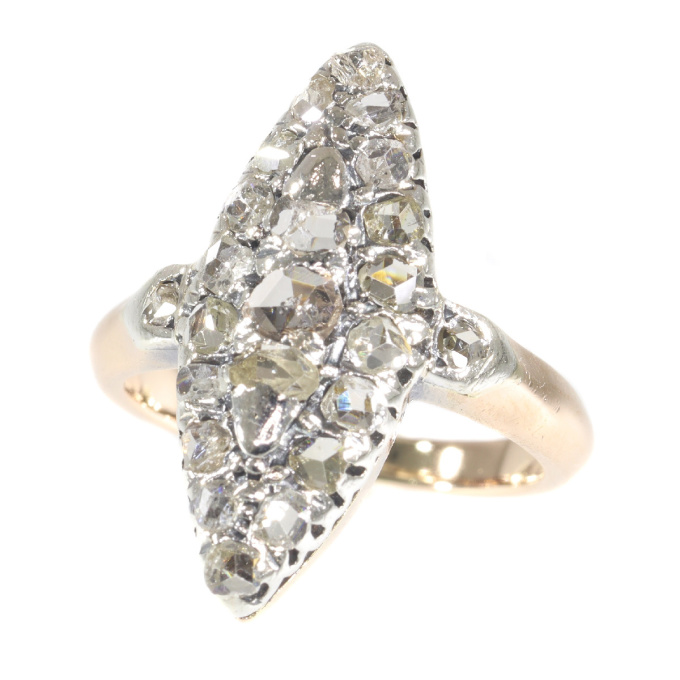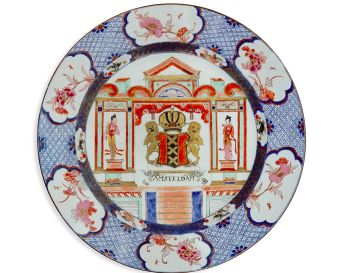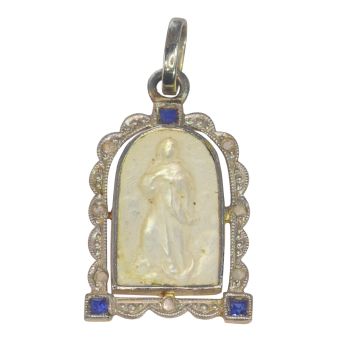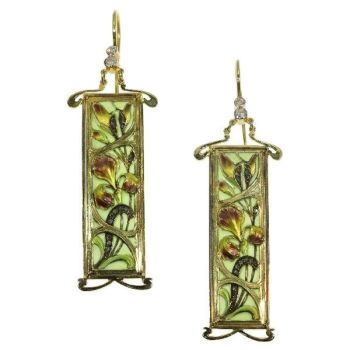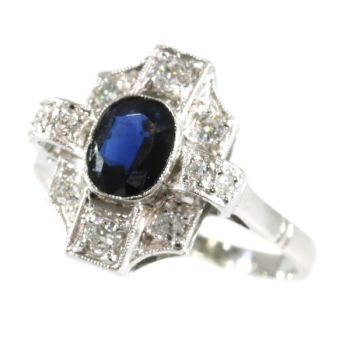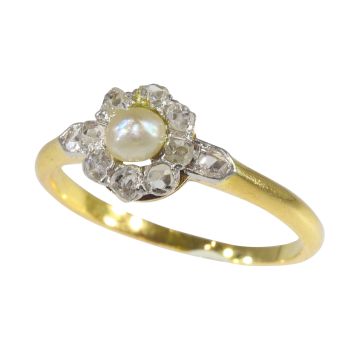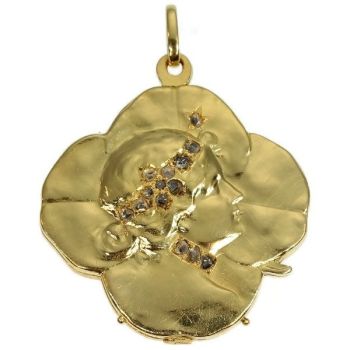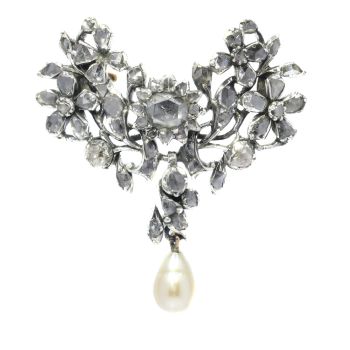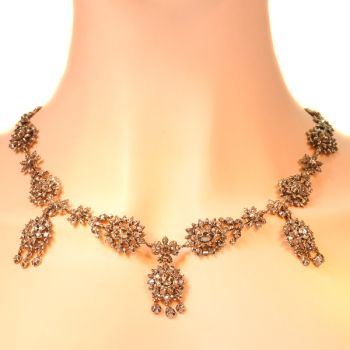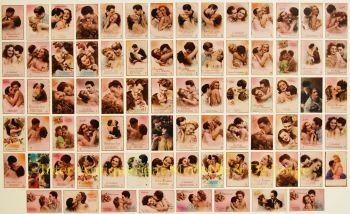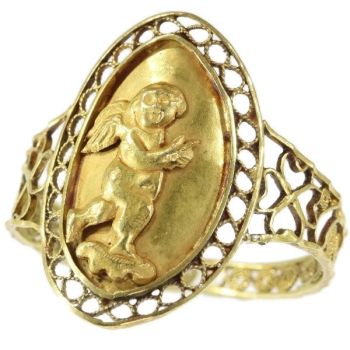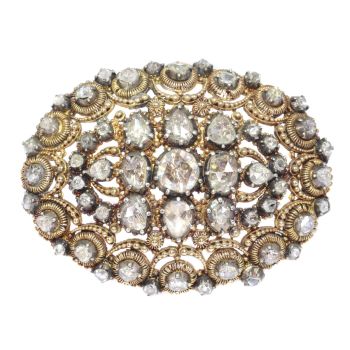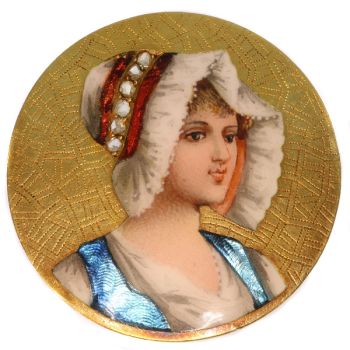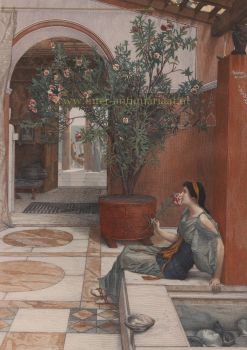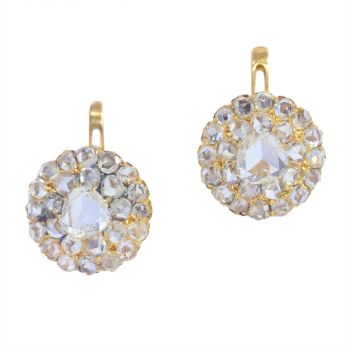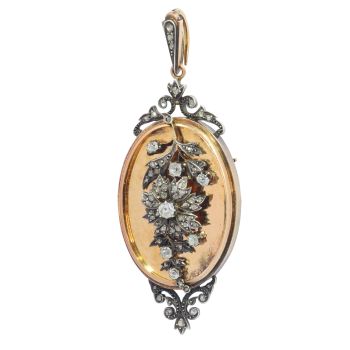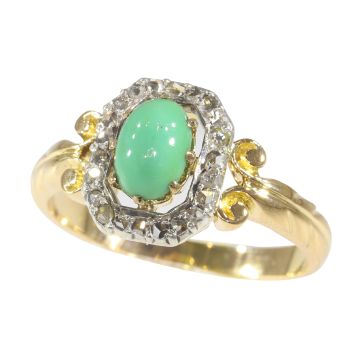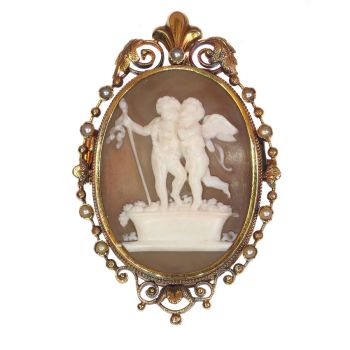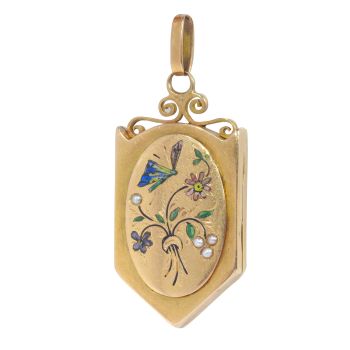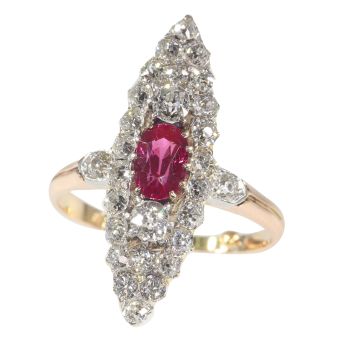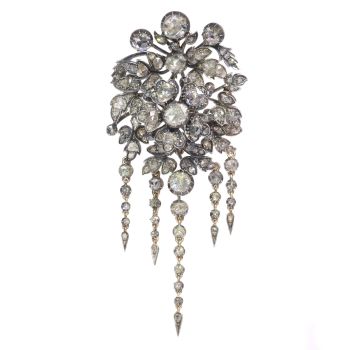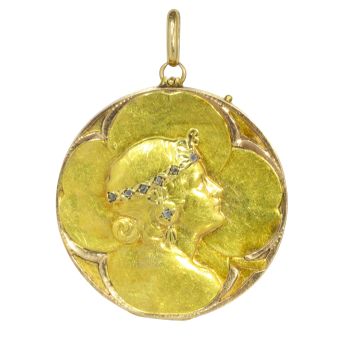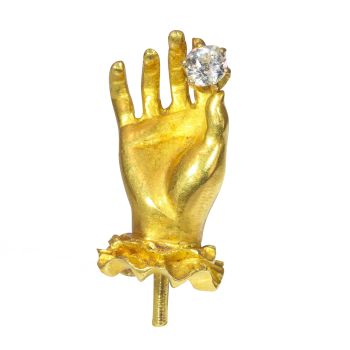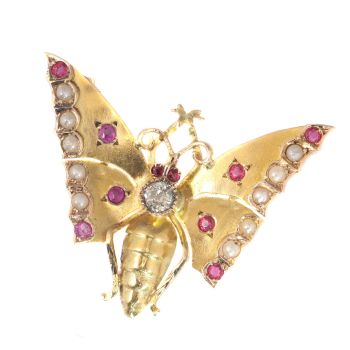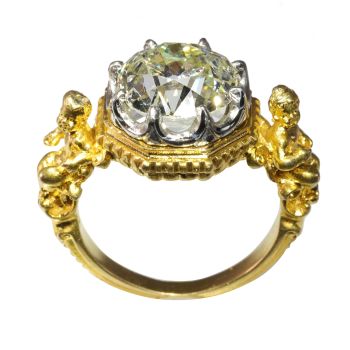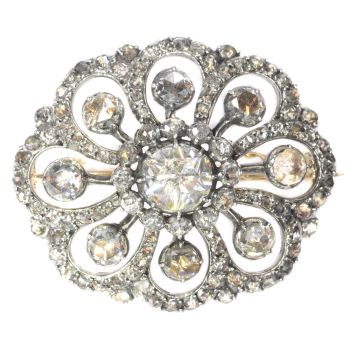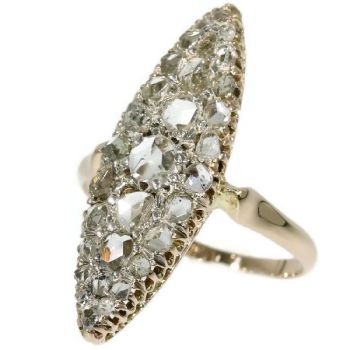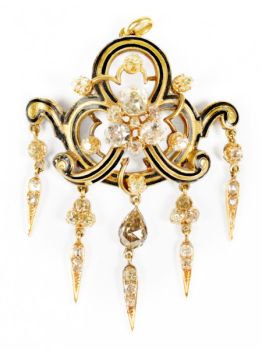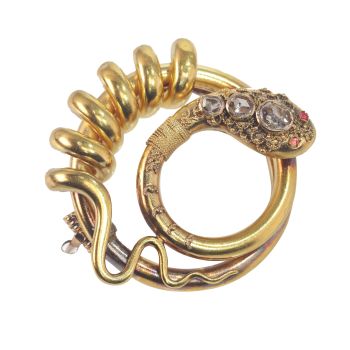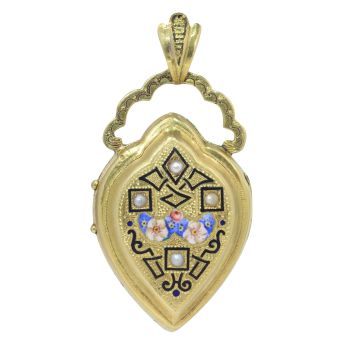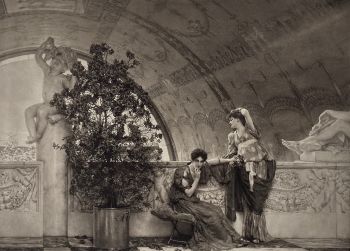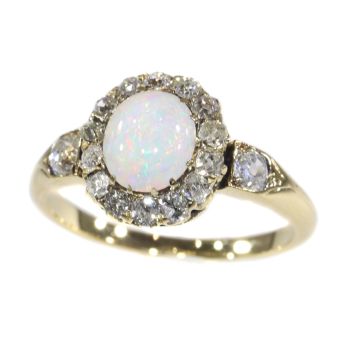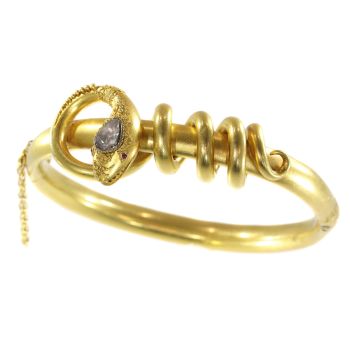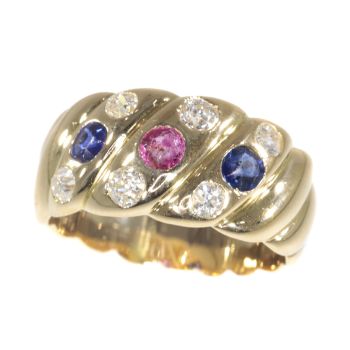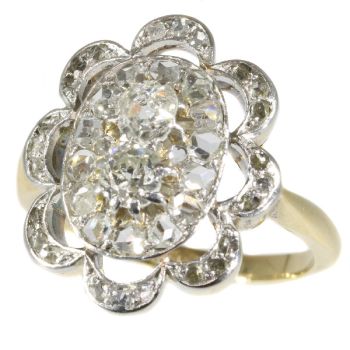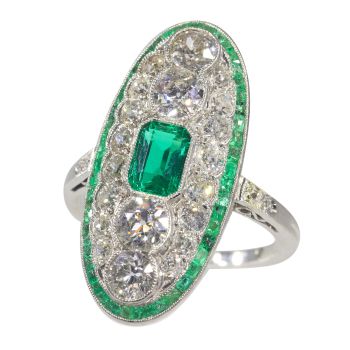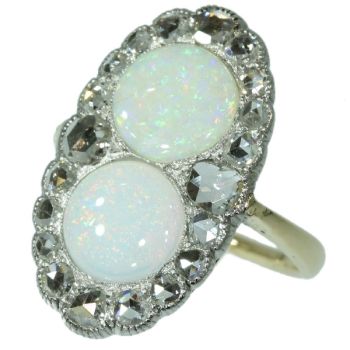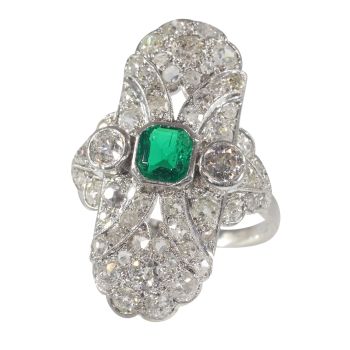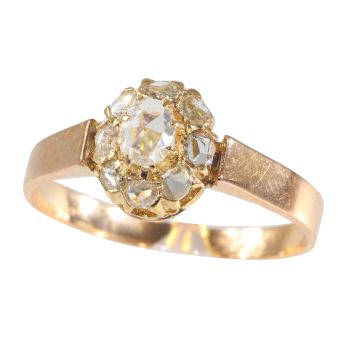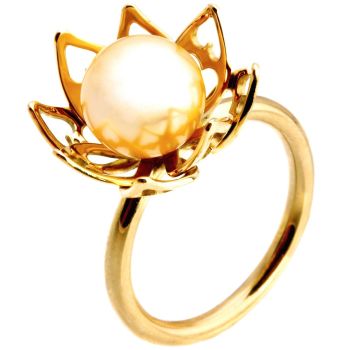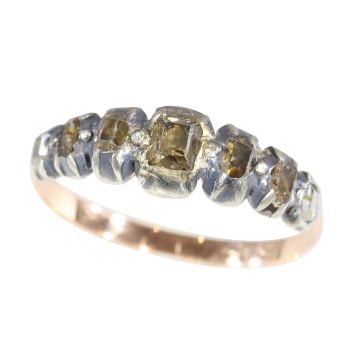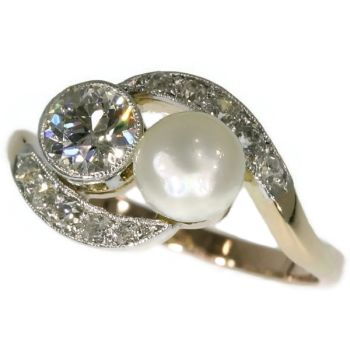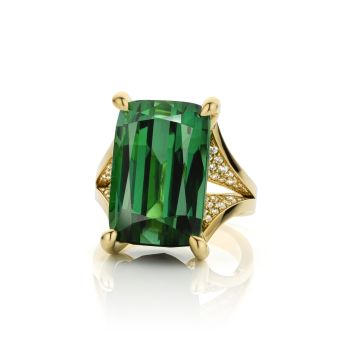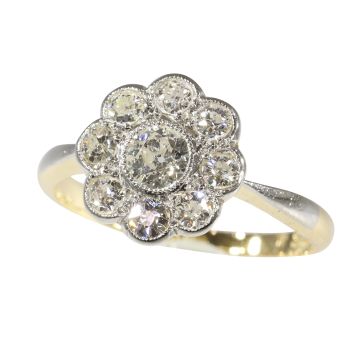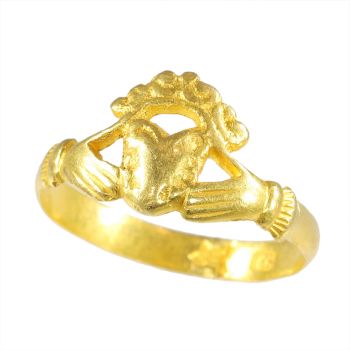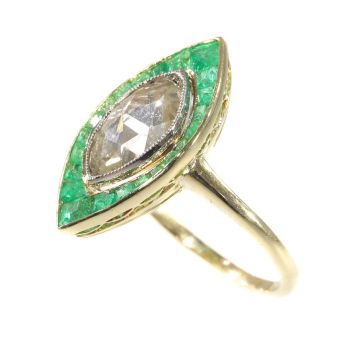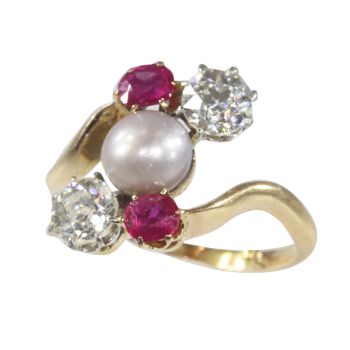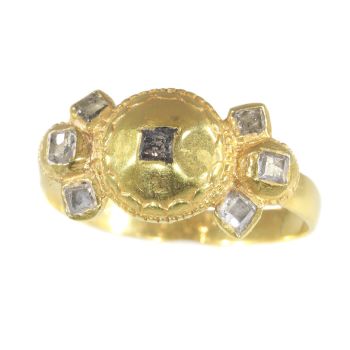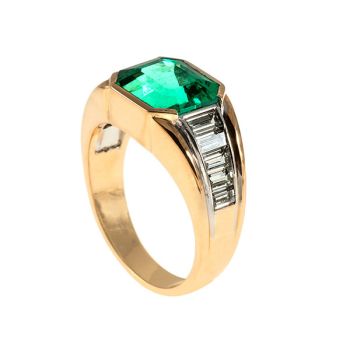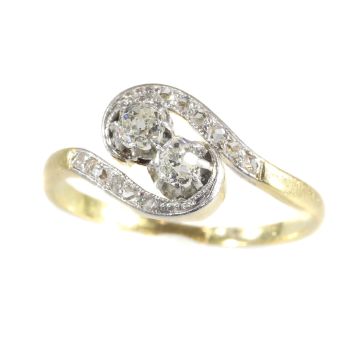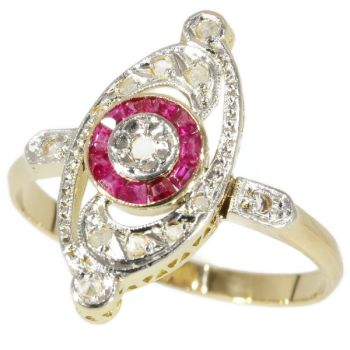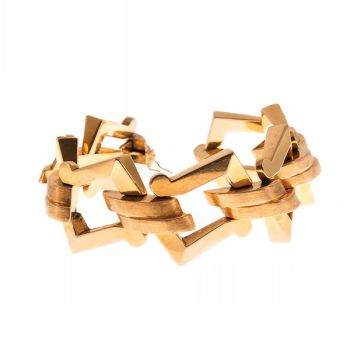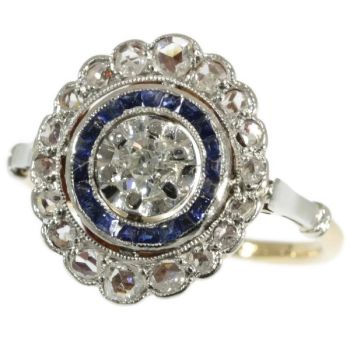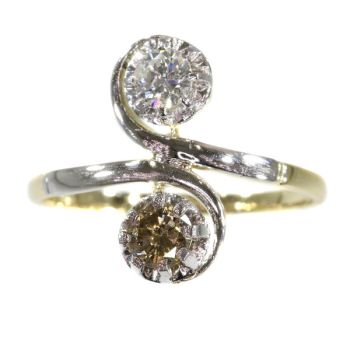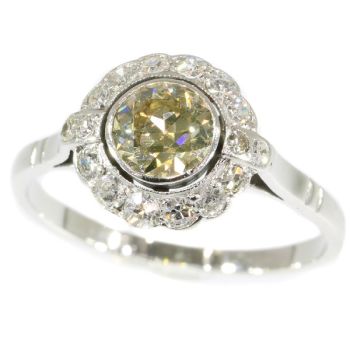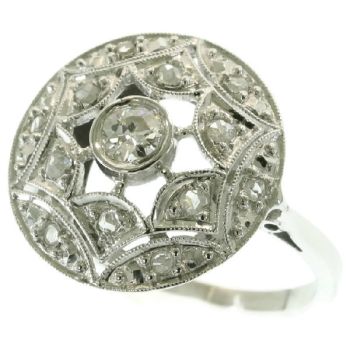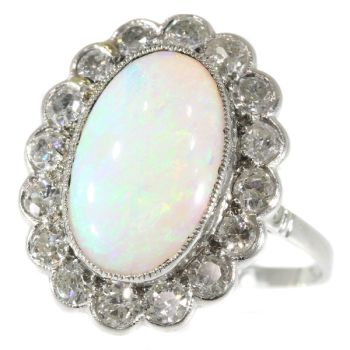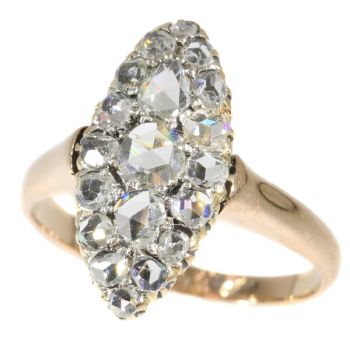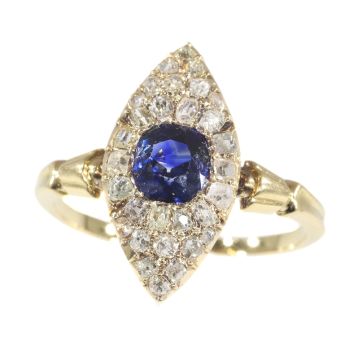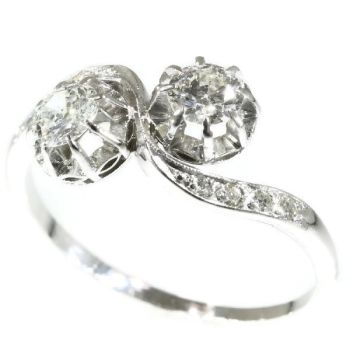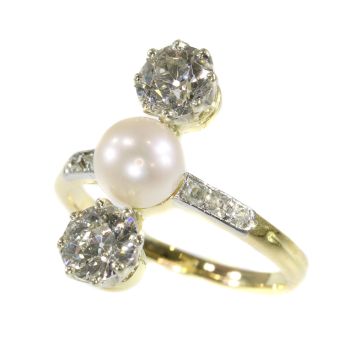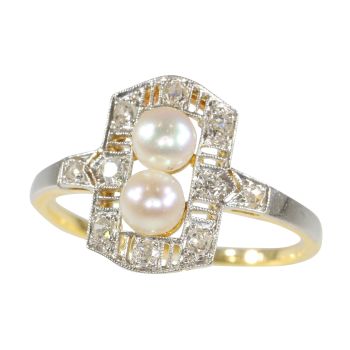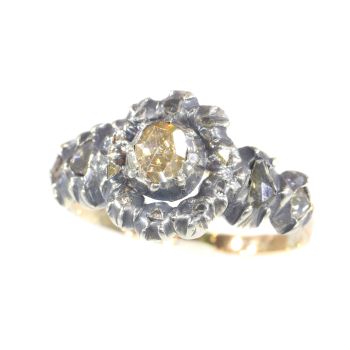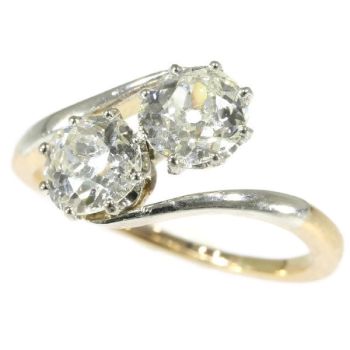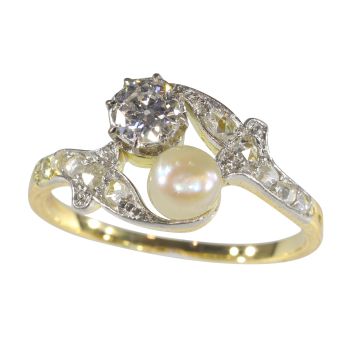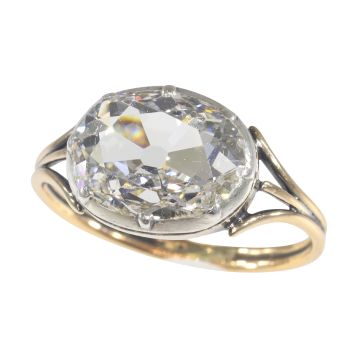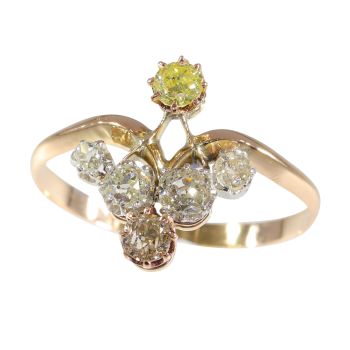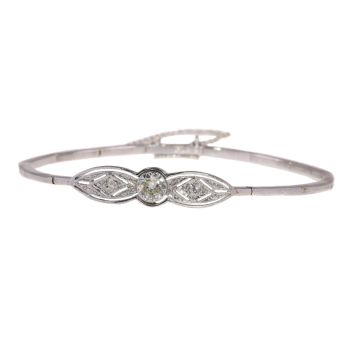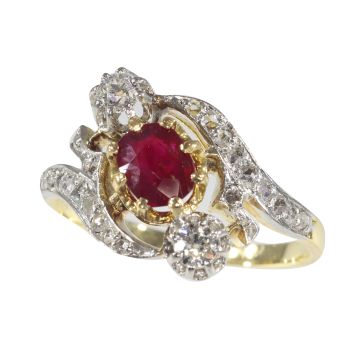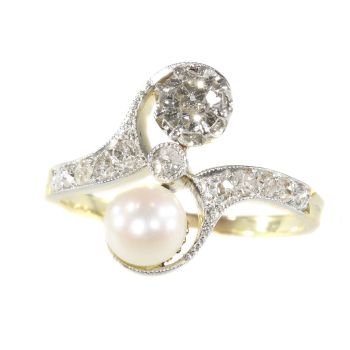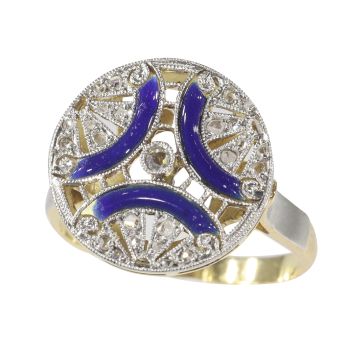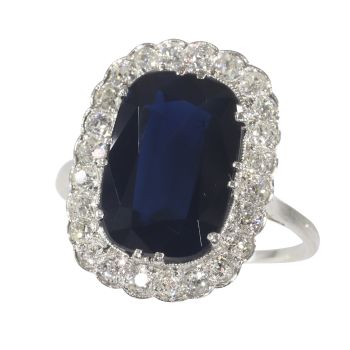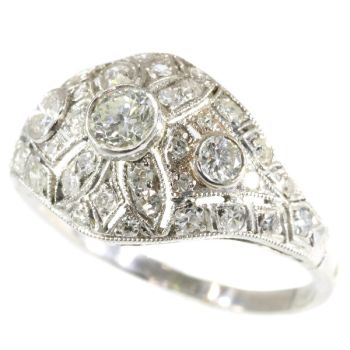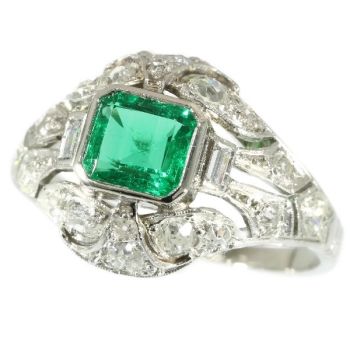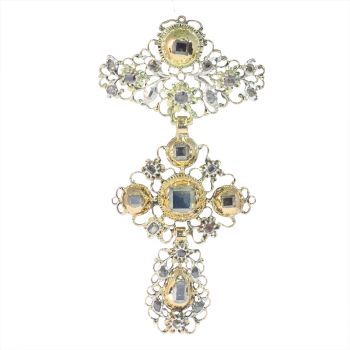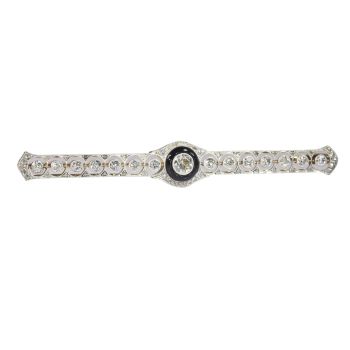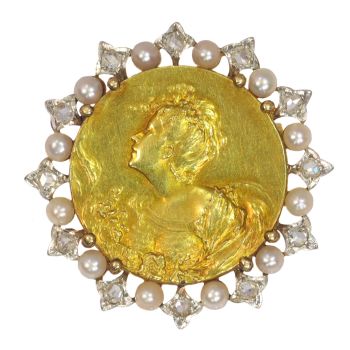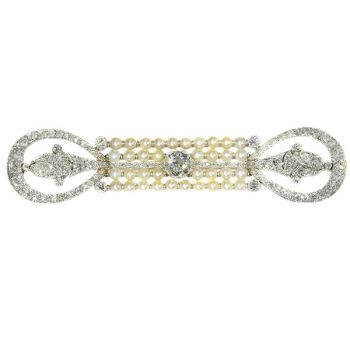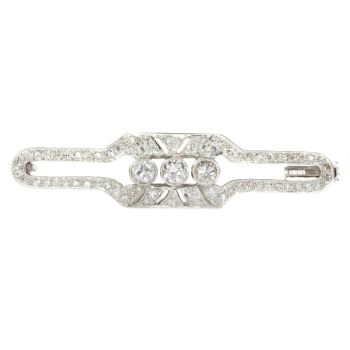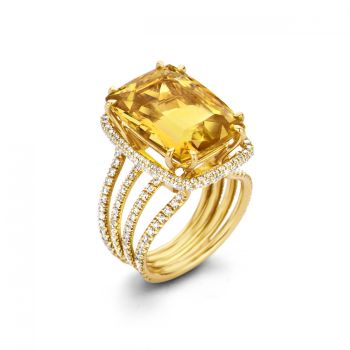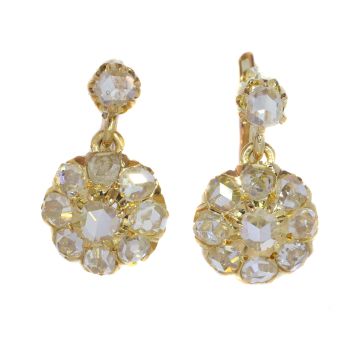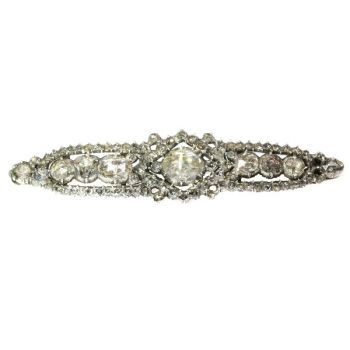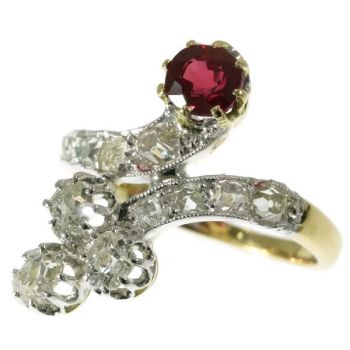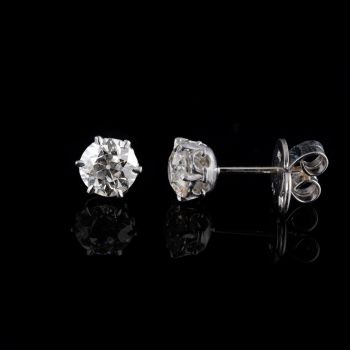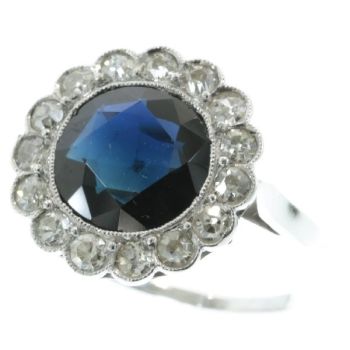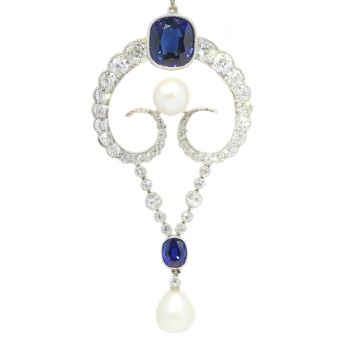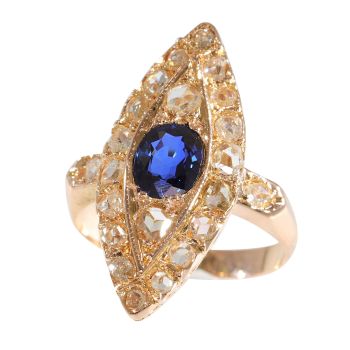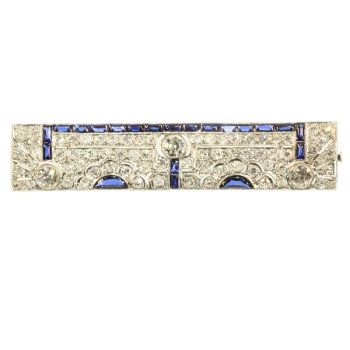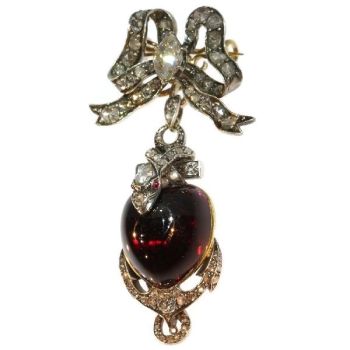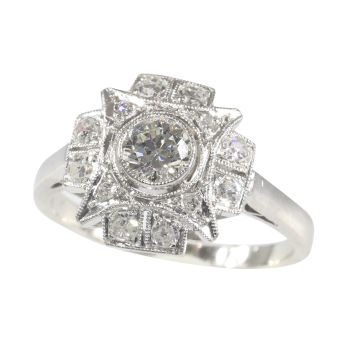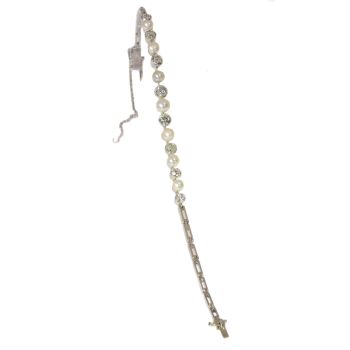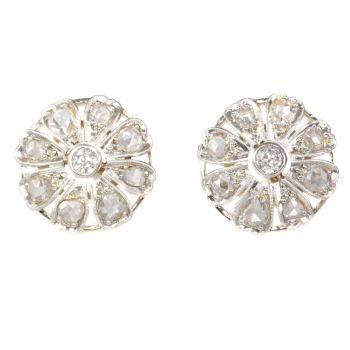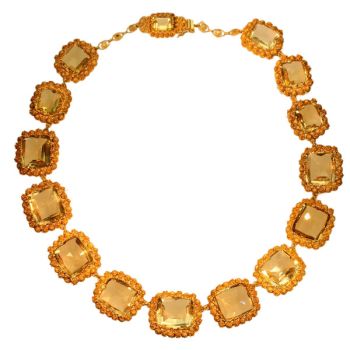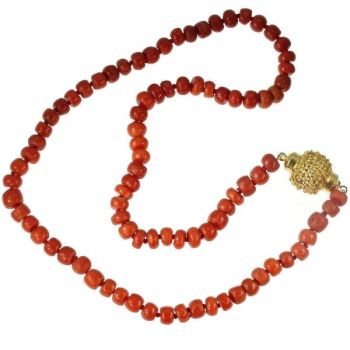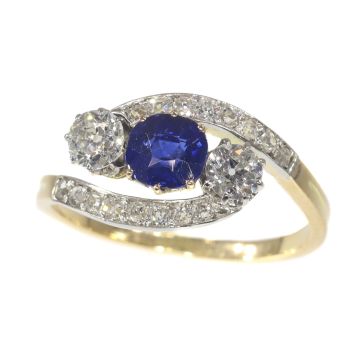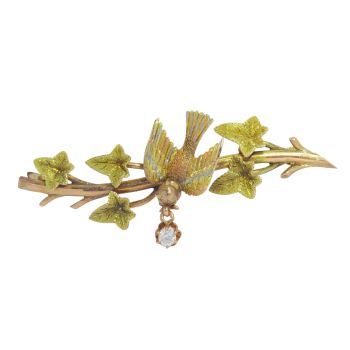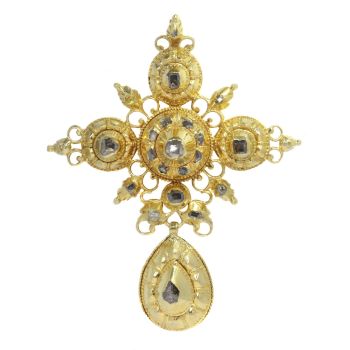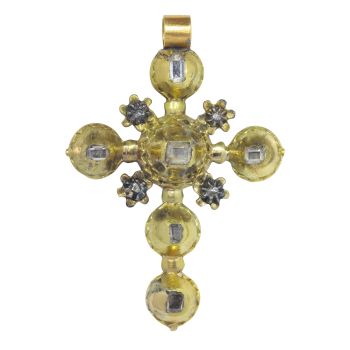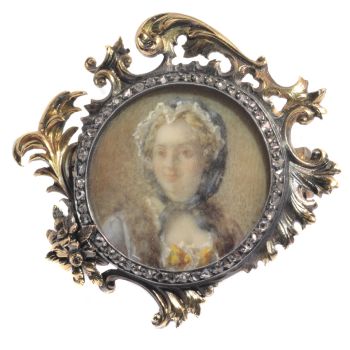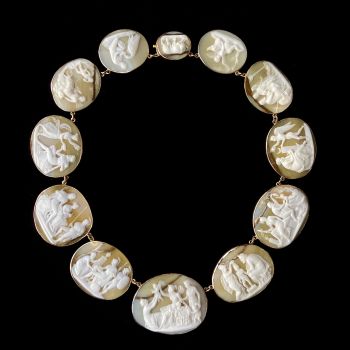Anel de noivado de diamante antigo em forma de barco 1890
Artista Desconocido
DiamantePiedra preciosa
€ 3.200
Adin Fine Antique Jewellery
- Sobre la obra de arte
Antique jewelry object group
engagement ring (or anniversary ring)
Condition
very good condition
more info on our condition scale
Style
Victorian - Victorian decorative arts refers to the style of decorative arts during the Victorian era. The Victorian era is known for its eclectic revival and interpretation of historic styles and the introduction of cross-cultural influences from themiddle east and Asia in furniture, fittings, and Interior decoration. Victorian design is widely viewed as having indulged in a regrettable excess of ornament. The Arts and Crafts movement, the aesthetic movement, Anglo-Japanese style, and Art Nouveaustyle have their beginnings in the late Victorian era.
- See also: Victorian
more info on styles
Style specifics
The Late or Aesthetic Victorian Period - Experts divide the reign of Queen Victoria, also called The Victorian era (1837-1901) into three periods of about twenty years each; The Romantic Victorian Period (1837 - 1860), The Grand Victorian Period(1860 - 1880), and the Late or Aesthetic Victorian Period (1880 - 1901).
We consider this to be of The Late or Aesthetic Victorian Period.
Jewelry of this period is changing back from heavy to more smaller, romantic pieces with often whimsical motifs. Jewelers using diamonds and bright gemstones in elaborated and fine feminine pieces.
Period
ca. 1890
Events & facts of this era, poetry of this era, fashion of this era.
Material
18k pink gold and silver, see also: The silver on gold technique (touchstone tested)
more info on precious metals
Extra information
Diamond is the birthstone for the month of April, and besides being the most popular gemstone for engagement rings, it is also the anniversary gem for the 10th and 60th years of marriage.
Even though the diamond is the hardest of all gemstones known to man, it is the simplest in composition: it is common carbon. The ancient Greeks believed that diamonds were splinters of stars fallen to earth. It was even said by some that they were thetears of the Gods or perhaps crystallized lightning or hardened dew drops. The exact origin of diamonds remained something of a mystery for centuries.
In ancient times only kings wore diamonds as a symbol of strength, courage and invincibility. Over the centuries, the diamond acquired its unique status as the ultimate gift of love. It was said that Cupid's arrows were tipped with diamonds which have amagic that nothing else can ever quite equal.
But it wasn't until 1477, when Archduke Maximillian of Austria gave a diamond ring to Mary of Burgundy, that the tradition of diamond engagement rings began. Even the reason a woman wears it on the third finger of her left hand dates back to the earlyEgyptian belief that the vena amoris (vein of love) ran directly from the heart to the top of the third finger, left hand.
Diamonds
23 rose cut diamonds. We do not have the weight of the diamonds which is normal in our trade when it comes to rose cuts.
All diamonds we offer are screened by www.ijgc-worldwide.com for whether they are natural or synthetic, and all diamonds in this jewel are 100% guaranteed to be natural.
Birthstones
Diamond is the birthstone (or month stone) for April.
more info on birthstones
Hallmarks
No trace.
more info on hallmarks
Dimensions
length top of ring 2,27 cm (0,89 inch)
see picture with a ruler in millimeters and inches
Weight
5,10 gram (3,28 dwt)
Ring size Continental EU: 51 & 16¼ , Size USA: 5½ , Size UK: K½
Resizing
Free resizing (only for extreme resizing we have to charge).
more info on ring sizes
Adin Reference Nº
21146-0157
Copyright photography
Adin, fine antique jewellery
Additional information
our latest acquisitions
jewelry glossary
wall of fame
visit us in Antwerp
subscribe to our mailinglist
- Sobre el artista
Puede suceder que un artista o creador sea desconocido.
Algunas obras no deben determinarse por quién está hecho o por (un grupo de) artesanos. Algunos ejemplos son estatuas de la Antigüedad, muebles, espejos o firmas que no son claras o legibles, pero también algunas obras no están firmadas en absoluto.
También puedes encontrar la siguiente descripción:
•"Atribuido a …." En su opinión, probablemente una obra del artista, al menos en parte.
•“Estudio de….” o “Taller de” En su opinión, una obra ejecutada en el estudio o taller del artista, posiblemente bajo su supervisión
•“Círculo de…” En su opinión, una obra del período del artista que muestra su influencia, estrechamente asociado con el artista pero no necesariamente su alumno.
•"Estilo de …." o “Seguidor de…”. En su opinión, una obra ejecutada al estilo del artista pero no necesariamente por un alumno; puede ser contemporáneo o casi contemporáneo
•"Manera de …." En su opinión una obra al estilo del artista pero de fecha posterior
•"Después …." En su opinión, una copia (de cualquier fecha) de una obra del artista
•“Firmado…”, “Fechado…” o “Inscrito” En su opinión, la obra ha sido firmada/fechada/inscrita por el artista. La adición de un signo de interrogación indica un elemento de duda.
•“Con firma…”, “Con fecha…”, “Con inscripción…” o “Lleva firma/fecha/inscripción” en su opinión la firma/fecha/inscripción ha sido añadida por alguien que no es el artista
¿Está interesado en comprar esta obra de arte?
Artwork details
Related artworks
- 1 - 4 / 12
- 1 - 4 / 24
- 1 - 4 / 24
- 1 - 4 / 24
Ans Hemke-Kuilboer
Solitair diamanten oorstekers2000 - 2017
Prijs op aanvraagAns Hemke-Kuilboer Juwelier & Antiquair
1 - 4 / 24- 1 - 4 / 12

